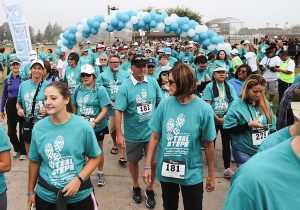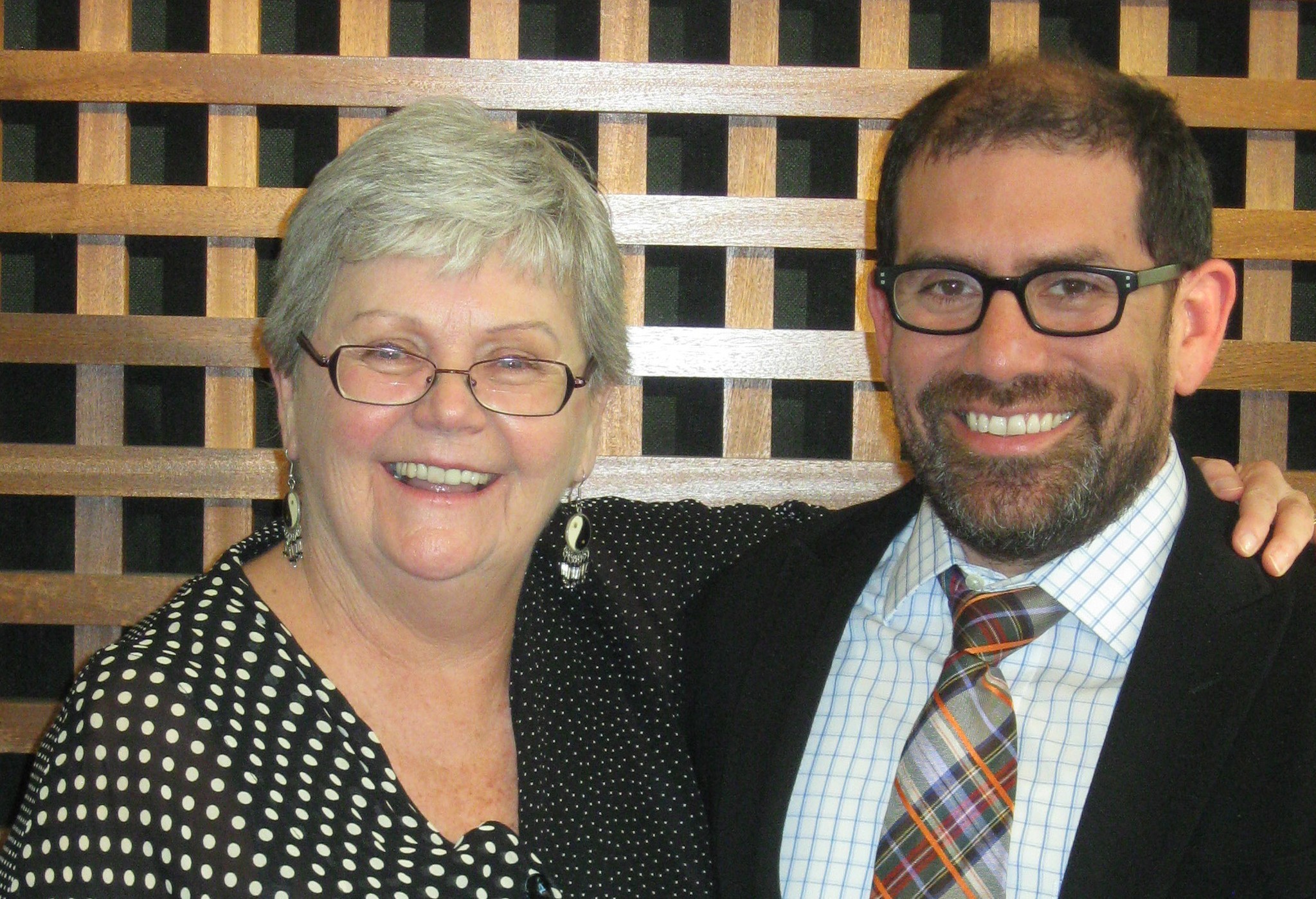Project LEAD: An Innovative Science Program for Advocates By Peg Ford
Would I have a chance to be accepted, as I did not technically qualify as a “breast cancer activist,” was the thought that raced through my mind as I viewed the following description on the National Breast Cancer Coalition (NBCC) website? “The Project LEAD® Institute is a five day intensive science course for breast cancer advocates covering the basics of cancer biology, genetics, epidemiology, research design and advocacy. This course provides a foundation of scientific knowledge upon which participants can strengthen and empower themselves as activists. Taught by a renowned research faculty, this is a unique opportunity for those interested in learning more about working as an NBCC research advocate.” Project LEAD is a registered trademark of the National Breast Cancer Coalition Fund, a 501(c)(3) tax-deductible non- profit organization.
Heading
Over the last few years, several of my fellow advocates from the breast can- cer community had mentioned Project LEAD (LEAD = Leadership, Education & Advocacy Development), suggesting that I look into the program. As well, I noticed that several organizations and scientifi programs had Project LEAD listed on their applications. I decided to apply this past July and was accepted!
I felt it was timely for me to apply because of the necessity to learn about the connection with the BRCA1/2 mutations and learn, as a woman, about the science of breast cancer. With the recent declaration by Angelina Jolie of her health issues related to BRCA mutation and her family history, including her mother who survived breast cancer but passed away from ovarian cancer, I held the hope that I had a chance to be accepted. Since my life-threatening ovarian cancer health scare in 2007, I have noticed the growing awareness, in the breast and ovarian communities, of the connection due to BRCA mutations, the launching of the FORCE organi- zation (for breast and ovarian cancer), and now the highly visible national and international increased public awareness, which I foresee will only focus more attention on evidence-based research and guidance.
As I am determined to become the best informed cancer research advocate, I felt strongly that I would benefi from NBCC’s Project LEAD program, which would increase my education and under- standing of the science of carcinogenesis, biology, and epidemiology in general, and breast cancer because of the overlapping subject areas and advocacy involvement. As well, I planned to go back to my constituencies and share how important the course was for me, to hopefully encourage more to pursue opportunities to learn and expand the collaboration between the 2 communities.
In addition, as I have many contacts within the academic medical structure on a local, state, national, and international level, I felt Project LEAD’s great leadership program would only support improved confidence and knowledge about cancer research to help me further engage with researchers. I approach my advocacy efforts with a focus not only on ovarian cancer, but also on cancer research in general. As I see science moving toward precision medicine, with more and more genetic mutations and pathways connecting treatment to various cancer disease types, it will not be long before, to be truly effective as an advocate, you will need to learn and expand your knowledge about the interconnected consequences of cancer research.
From the acceptance notice with pre-readings to the hefty binder I received on arrival, I realized that the description of an intense, packed 5 days was appropriate, and the 12- to 14-hour days with homework each night were a reality. Part of the preparation was the Cochrane Collaboration online course “Understanding Evidence-based Healthcare: A Foundation for Action” written by Professor Kay Dickersin, of the Johns Hopkins Bloomberg School of Public Health and a longtime Project LEAD faculty member, and Musa Mayer, NBCC advocate. They developed this 6-module course specifically for consumer advocates, as well as one I had taken back in 2009 when I became a consumer reviewer for the Cochrane Gynecological Cancer Review Group in the United Kingdom. I know Kay Dickersin from having attended the Cochrane Colloquiums in Keystone, Colorado, in 2010, and in Madrid, Spain, in 2011, as well as joining the Consumers United for Evidence-based Healthcare (CUE) organization.
Project LEAD: what an incredible program! It was certainly intense and an incredible learning opportunity absolutely. I found the program to be current and well designed, and the area of focus amazed me. Each morning, we started the day with a moment of silence to honor a fallen hero, to remind us of the importance of carrying the torch for- ward. The topics covered on the agenda were enlightening and educational. I was immersed from the start in:
- Introduction to basic science
- Biology of cancer
- Principles of genetics
- Immunology 101
- Structure and function of DNA and RNA, protein, translation, and mutations
- Development of cancer at the molecular level
- Introduction to epidemiology
- From bench to clinic: issues and controversies in breast cancer
- Risk factors
- Evidence-based healthcareResearch seminar in the genomics of screening
- Research seminar in the genomics of screening
- Critical appraisal skills
- Evaluating science information pre- sented in the media
- Systematic review and meta-analysis
One great aspect was the added benefit of the formation of smaller study groups with a facilitator/mentor, where we worked to understand the nuances and concepts of the The faculty members were outstanding and had the ability to explain complex scientific theories to a lay audience with such ease and grace. I never got the impression they had to struggle to have us understand the lectures or found it difficult in any way to grasp the teachings.
Since its inception in 1991, NBCC has an accomplished record of bringing about exceptional research funding to the worldwide scientific community, shaping new collaborations to design research and set priorities, expand- ing access to information and care to under-served women, and implementing unmatched training programs to prepare advocates to work side-by-side with scientists, policymakers, and healthcare providers.
NBCC’s initiative, Breast Cancer Deadline 2020, is a formative action and undertaking to know how to end breast cancer by January 1, 2020! The strategic plan is impressive, involving all stakeholders, researchers, advocates, the patient community, policymakers, and healthcare providers. If any group has the passion, leadership, and determination, NBCC is the organization to achieve this mission. Check the website for further details and how to get involved in this important mission: www.BreastCancerDeadline2020.org.
For certain, having attended this program will enable me to be a bet- ter cancer research advocate. I have such gratitude for the opportunity to participate this year. I realize the gift I was given and wish to acknowledge NBCC as well as the companies (the Avon Foundation for Women, Cancer Treatment Centers of America, and Novartis Oncology), which in part funded the program with their gen- erous grants. And, finally, I feel it is very important for women’s cancer advocates to bond, work together, and create opportunities to combine our efforts for the benefit of all women. Without question, it would be tre- mendously appreciated and valued if sponsors would step forward to not only continue to support this vital project, but perhaps fund an expansion of Project LEAD for more advocates from all cancer disease tracks. l


 Important Steps in the Conquest of Ovarian Cancer by Peg Ford – The Oncology Nurse December 2013
Important Steps in the Conquest of Ovarian Cancer by Peg Ford – The Oncology Nurse December 2013